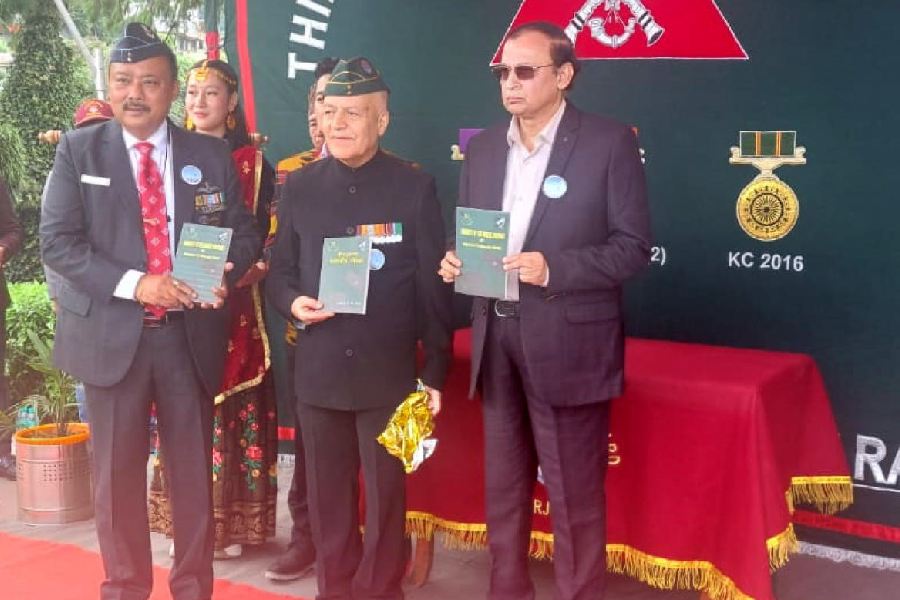As the country celebrated Kargil Vijay Diwas on Friday, the story of Honorary Captain Gyanendra Kumar Rai — who managed to escape from the clutches of the Pakistani forces and is currently living with 80 per cent disability — came to light.
Rai has narrated his account — hitherto unknown to the public — in a book titled Bravest of the Brave Gorkhas, written by Colonel P.K. Sharma (retired).
The book was released from the Batasia War Memorial in Darjeeling on the silver jubilee year of the Kargil War victory. The war was fought between India and Pakistan between May and July 26, 1999.
In the book, Rai recalled that his battalion in the 11 Gorkha Rifles regiment moved to the combat zone in Kashmir on July 1, 1999.
Rai and two soldiers were asked to go as close to the enemy bunker as possible and reached the hilltop where he saw the enemies within a distance of 40 metres around 3.30am.
“I told two soldiers to keep watching the movement (of the enemies) and fire at the rate of 1 bullet per enemy. I was carrying 200 rounds of Insas rifles and three grenades. I borrowed 150 rounds and two more grenades from my team and proceeded forward,” Rai said in the book.
It was then that two enemies spotted Rai. “I killed them instantly,” said Rai.
Rai then had to hide under the rocks for a long time because of heavy bombardment.
In due course, he, however, slipped about 30 metres downhill. There he saw a bunch of telephone lines of the enemies, which he instantly cut with his khukuri.
“In the evening, enemy troops came to repair the lines. I lobbed grenades at them. I do not know how many were killed but I could hear the cry of enemies,” said Rai. Later the commanding officer told Rai that he had killed eight enemies.
Rai, however, was also hit on his right neck and left shoulder by enemy bullets.
“I was bleeding and I also realised that my left hand had also broken. I was already in the enemy location alone,” said Rai.
It is then that three enemy soldiers caught Rai.
“I was not in a position to fire so I threw my ammunition and rifle down the slope so that the enemy could not use it,” he said.
The enemies tied his hands on the back. “Due to the unbearable pain, I told them to kill me. One soldier aimed at me but an officer did not allow him to shoot. I was taken as a Prisoner of War,” said Rai who recollected how the body of another soldier had been cut into many pieces and returned.
As Rai was being taken, another team from the Indian Army attacked the enemies.
“At an opportune time, I jumped on the snow slope and slided 40 metres downhill. Then I continued to walk for another four to five hours,” recalled Rai.
He finally reached the territory where the Indian troops were present. He had started coughing blood by then and was immediately evacuated.
Rai was first flown to a military hospital in Leh, then to the base hospital in Srinagar and finally to the army hospital in Delhi.
After a month, Rai was discharged from the hospital with an 80 per cent disability and was given “soft duty” until he retired in 2017 and currently lives in Bagdogra, Siliguri.
Rai was awarded the Vir Chakra, which is awarded for acts of gallantry in the presence of the enemy.
Author Col Sharma (retired) said: “I decided to write the book because many stories of bravery by the Gorkhas are unknown as nobody has written about them. Out of 10 brave deeds, we probably know the stories of only one or two Gorkha soldiers.”










